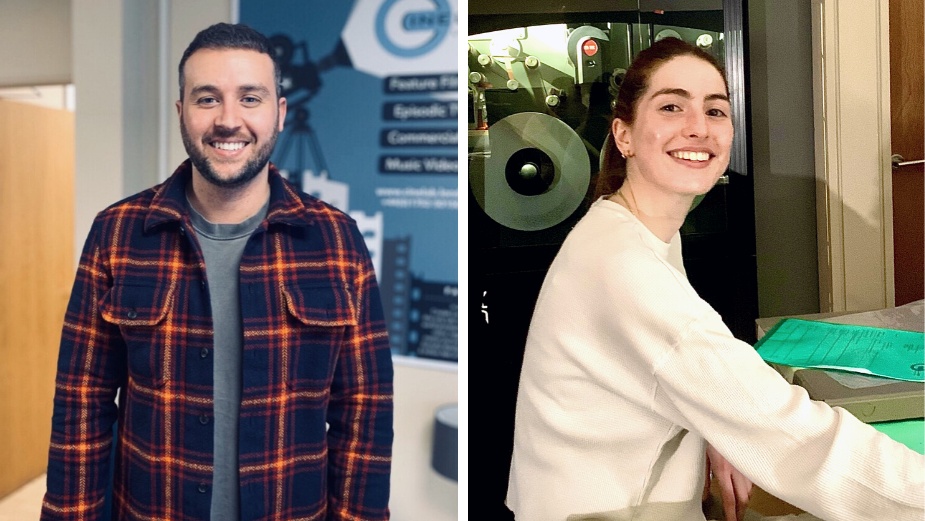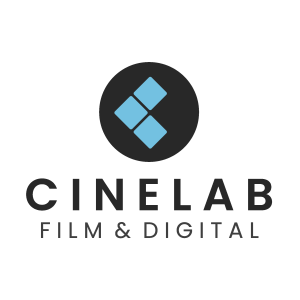
Meet the Up-and-Coming Talent with One of the Rarest Jobs in the World

Earlier this year, the film industry celebrated the 92nd Academy Awards for the Oscars. Taking a look over the nominees for Best Picture and Cinematography, those shot on film slightly overtook the number shot on digital cameras.
Although in general more and more films are being shot in digital format, the almost 50/50 split between film and digital nominations at the Oscars is a good indication that film still has a lot to offer in a world being inundated by digital advancement.
Whilst some of the top directors continue to use film, the craft is in danger of being lost among up-and-coming talent - the future of the industry. Many universities and colleges now only teach film as part of a short module and it is a lot more difficult for students to get their hands on a film camera with their production on the decline.
The Future of Film
Cinelab London is one of the world’s premiere film laboratories and facilities offering years of expertise in processing negatives, scanning, sound processing, grading and more. Their film specialists provide in-depth knowledge to advise clients from pre-production through to final deliverables. But since the rapid rise of digital cameras, less and less attention has been placed on the traditional method of film, which has had a knock-on effect on new talent entering the industry.
This places Cinelab’s next generation, Charlotte Hayde and Scott Liddle, in one of the rarest jobs for young people in the industry. Though there is a pressing need for encouraging and educating new talent about film as well as digital mediums, both Charlotte and Scott stumbled upon the lab by chance.
It was during a project at university that Charlotte first learned about the shooting on film and fell in love with the craft. “I had a really inspiring lecturer at university who was really passionate about the use of film and made me want to learn more. We worked on some 16 and 35mm projects and we actually came to Cinelab to get them developed and scanned.”
After visiting the lab, Charlotte reached out for work experience and went on to earn a role as Film Scanning Operator at Cinelab. One of her very first responsibilities included helping the team remaster Wham! - Last Christmas in 4k. “It was an incredible opportunity to work on this project and the response the re-release received was outstanding, wracking up millions of views within minutes. It was so exciting being a part of something this influential.”
She comments: “Even though the negatives were in perfect condition, it was still a little nerve-wracking handling them! But it was such an honour to be able to view the original reel as we scanned it in.”
Charlotte’s colleague, Scott also works in the scanning department and remembers one of his first opportunities at Cinelab just as fondly. “Being a huge fan of Drake’s music I was thrilled to get to work on his video ‘Non Stop’ when I first joined Cinelab. I had already come from a background of scanning and restoration through my years at Technicolor, Deluxe and Pinewood Post but viewing things at the lab gave me new insight into the whole process and I’ve since started getting into colour grading too. I’m doing an online course at the moment and use YouTube tutorials to learn more about it.”
“YouTube is a great resource,” Charlotte agrees. “It started gaining popularity when I was a student and everyone used to use it to document their lives. That’s how I first learned the very basics of filming and editing videos.”
An Unexpected Career Option
Before joining Cinelab, Charlotte had not considered working with film. After studying media, her plan was to take the traditional route training as a runner to eventually get into the camera department. “I wanted to learn more about cameras and direct short films - I’m still looking to direct in the future but I’m grateful to have found Cinelab as I now have a unique edge within working on film and understand the process more in depth. In the scanning department we learn so much about handling the negatives and have to have intense attention to detail, looking out for any damage to the reel. I’ve had the privilege of seeing other directors’ work and the array of creative processes that film can be put through; from burning and scratching to cutting.”
Scott also found his passion for film as a happy accident. “I grew up playing football but had to resort to coaching when I suffered a leg injury. It wasn’t what I wanted to do so my brother encouraged me to train as a runner at Technicolor where he was working at the time. We both loved films growing up so the interest was there - I’d just never considered it as a career option before.”
As soon as Scott entered the world of post production, he was hooked. “I found it fascinating to see just how much goes on behind the scenes and I used my time as a runner to work in all different departments, learning everything I could about the process. Working at Cinelab has been eye-opening and I enjoy seeing new directors progress as they get better and better at their craft.”
“I feel that working on film needs to be advertised more,” he continues. “Young talent and students should be given more opportunities to be exposed to the craft through workshops and talks with people in the industry. It’s also important to remember that it’s never too late to follow a passion. Even if you don’t work in the field, if you’re willing to put in the graft, then you don’t necessarily need qualifications to get in. It’s about loving what you do and working hard to perfect the skills.”
Time Honoured Craft Deserves More
When asked about why he thinks many young filmmakers have shied away from using film, he responds: “Most of them are just scared to use film as they’ve never been taught about it properly. If students were educated about the process more then we’d see a lot more diversity between mediums. Plus, these days you can just pick up your phone and shoot something digitally. Picking up a film camera probably seems archaic to them but as digital film becomes overused, more young directors are turning back to film to offer something ‘new’ again.”
“I completely agree,” Charlotte says. “Digital is getting saturated and competitive so we’ve seen new talent trying their hand at film. I think a lot of people have avoided experimenting with film because of the misconception that it’s more expensive to use. But it can be just the same with digital cameras and their endless amount of memory and storage space. You tend to overshoot on digital camera but shooting on film makes you think differently. You forward plan more as you’ve got one shot and you’ve really got to make it count. You have to be meticulous. It’s a completely different discipline.”
She adds: “Part of the problem is the lack of film cameras available and the abundance of digital cameras. But you can always rent a film camera when you need to.”
A Happy Medium
So when would you choose to shoot on film? “Film is far more lifelike,” explains Scott. “Digital can be a bit jarring when people, in particular, look too sharp and it creates a disconnect so that you’re not as submerged in the story.”
Charlotte points out that “as many people are mixing formats, some tend to go for digital for its performance in low light, and choose film because of its response to daylight. We’ve noticed people preferring the skin tones that film brings to a project and then mixing with digital for a different look within the same project. They can co-exist quite harmoniously.” She continues: “It’s important to remember that it’s not necessary to pick one practise over the other. Film and digital mediums can be used together depending on what’s right for the scene. You should use whatever the project requires.”
The overarching message here is that film and digital can and do work well together - neither should be dismissed. But time-honoured film deserves more credit and importance than it is currently getting, leaving it at risk of being a forgotten craft.
As Charlotte and Scott’s enthusiasm for the field proves, it is not an archaic medium and there is plenty that it continues to offer if we just equip the industry’s young talent with the skills that they need to keep it alive.













